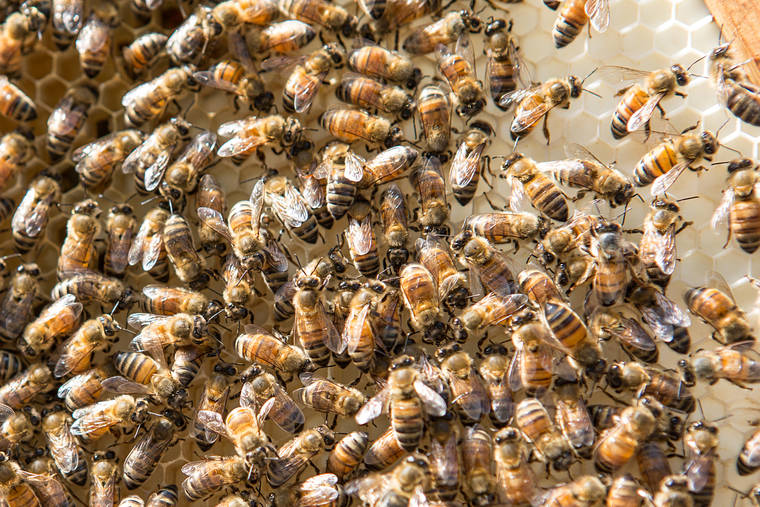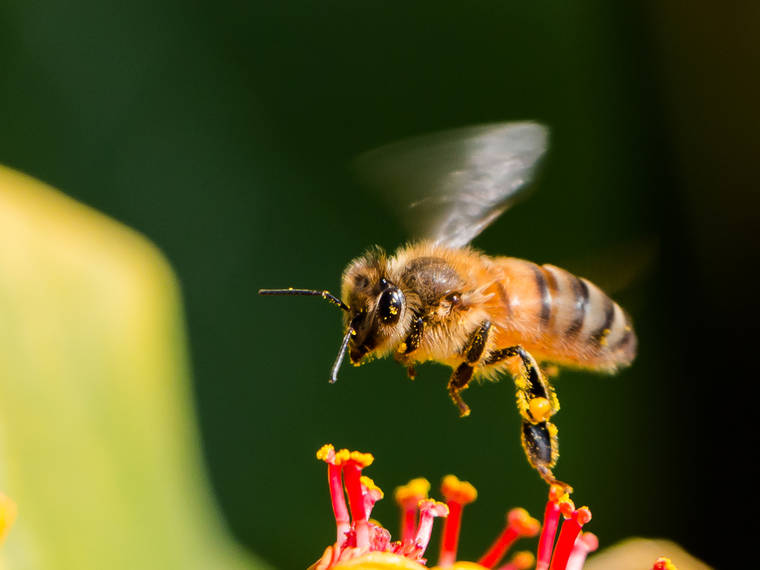LIHUE — American beekeepers are launching another lawsuit at the federal Environmental Protection Agency for allowing what they say is another bee-killing pesticide back onto the market.
The pesticide, called sulfoxaflor, was greenlighted by EPA in July. It is advertised as an insecticide and is an ingredient in Isoclast, an insect neurotoxin. Sulfoxaflor is made by Corteva Agriscience, a company that has some operations on Kauai, but doesn’t do any manufacturing of pesticides on the island, according to Corteva.
When sale of the insecticide was allowed back on the market, advocates said it’s another tool that, when used safely and according to the product label, can help farmers combat insects on their farms.
But Kauai beekepers said it was a step in the wrong direction, especially since it was approved for use on bee-attracting crops.
Now, the environmental law firm Earthjustice is representing beekeeper Jeff Anderson, the Pollinator Stewardship Council and the American Beekeeper Federation in a lawsuit aimed at overturning the decision.
Such an attempt was successful after sulfoxaflor was first approved in 2013. After that happened, a lawsuit brought by Pollinator Stewardship Council, the American Beekeeper Federation and Earthjustice made it to the Ninth Circuit Court of Appeals, which overturned the decision.
The court ruled in that case that EPA failed to obtain reliable studies regarding the impact of sulfoxaflor on honey bee colonies.
In 2016, EPA re-approved sulfoxaflor subject to significant restrictions to reduce the risk to honey bees and other pollinators. On July 12, 2019, without any public notice, the Trump administration removed these restrictions on sulfoxaflor and approved a host of new uses for the insecticide.
“It is inappropriate for EPA to solely rely on industry studies to justify bringing sulfoxaflor back into our farm fields,” said Michele Colopy of the Pollinator Stewardship Council, in a Friday announcement of the suit.
“Die-offs of tens of thousands of bee colonies continue to occur, and sulfoxaflor plays a huge role in this problem. EPA is harming not just the beekeepers, their livelihood, and bees, but the nation’s food system.”
EPA, however, came to different conclusions in their analysis.
In their July announcement approving the insecticide for use, EPA said: “After conducting an extensive risk analysis, including the review of one of the agency’s largest datasets on the effects of pesticide on bees, EPA is approving the use of sulfoxaflor on alfalfa, corn, cacao, grains, pineapple, sorghum, teff, teosinte, tree plantations, citrus, cotton, cucurbits, soybeans and strawberries.”
•••
Jessica Else, environment reporter, can be reached at 245-0452 or jelse@thegardenisland.com.





